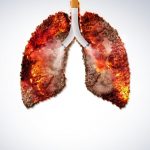
One in two people who smoke will die from their dependancy except they give up (Banks et al., 2015; Doll et al., 2004; Siddiqi et al., 2020). Individuals with main depressive dysfunction (MDD) are as much as thrice extra more likely to smoke than these with out MDD, highlighting the pressing want to deal with this public well being problem. Smoking prevalence in folks with despair is 17.6% within the USA (Beth et al., 2022), with some research suggesting charges as much as 33% in different high-income nations (e.g., the UK (Taylor et al., 2020).
Whereas folks with psychological well being situations are motivated to give up smoking (Siru et al., 2009), their odds of efficiently quitting are 19% decrease than these with out psychological sickness (Hitsman et al., 2013). As a consequence of these inequalities, people with despair are practically twice as more likely to die from smoking-related illnesses (Correll et al., 2017; Plana-Ripoll et al., 2019).
The proof linking smoking to psychological well being is putting. Not solely could smoking trigger despair (Wootton et al., 2020), however cessation has been proven to enhance psychological well being (Taylor et al., 2021). But, a way of therapeutic nihilism prevails within the therapy of smoking amongst these with psychological sickness. For instance, varenicline, an efficient smoking cessation help, is much less more likely to be prescribed on this inhabitants than different medicines, like nicotine substitute remedy (NRT) (Taylor et al., 2020), and it has been laden with cautions to prescribers (British Nationwide Formulary), regardless of no clear proof of hurt (Anthenelli et al., 2016; Taylor et al., 2020; Thomas et al., 2022; Thomas et al., 2015; Wu et al., 2023).

Smoking charges and, consequently, smoking-related illnesses are excessive amongst these with despair, making a urgent public well being problem—time for higher elf-care and entry to efficient smoking cessation therapies like varenicline.
This secondary evaluation of the EAGLES randomised managed trial (RCT) (Anthenelli et al., 2016; Kypriotakis et al., 2024) targeted on:
- People with present or historic main depressive dysfunction (MDD) and,
- People with no psychiatric analysis (n= 6,653).
Eligible individuals smoked >10 cigarettes/day and had been motivated to give up. Individuals had been randomised to 12 weeks of varenicline (1 mg twice each day), bupropion (150 mg twice each day), nicotine substitute remedy (NRT) (transdermal nicotine patch 21 mg per day with taper), or placebo (placebo situation acted as a comparator for every particular person medication situation), with transient behavioural counselling at every go to. The 12-week therapy part was adopted by a 12-week non-treatment part. Individuals had been requested to finish as much as 15 face-to-face visits and 11 phone visits through the 24-week trial. The trial was double-blinded, and consequence knowledge had been analysed as intention to deal with.
Outcomes included reasonable to extreme neuropsychiatric opposed occasions (NPSAEs) and biologically verified, steady abstinence at weeks 9–12 and weeks 9–24. Psychological well being modifications had been assessed utilizing the Hospital Nervousness and Despair Scale (HADS), measuring anxiousness and despair.
Individuals
Outcomes had been introduced by therapy situation, and additional stratified by psychological well being subgroup:
- Previous main depressive dysfunction (MDD) (n=2,174).
- Present MDD (n=451).
- These with out psychiatric analysis (n=4,028).
At baseline, the current-MDD cohort had the next proportion of females and better nicotine dependence, worse psychological well being in accordance with the HADS and suicidal ideation historical past, greater use of psychotropic medicines (e.g., antidepressants, anxiolytics, hypnotics, sedatives, antipsychotics, and temper stabilisers), and an extended smoking historical past.
Neuropsychiatric opposed occasions (NPSAEs)
The incidence of NPSAEs was low throughout all teams, with most signs occurring at frequencies ≤0.9%. Importantly, there have been no treatment-related variations in suicidal ideation or associated behaviours, or therapy discontinuations between the despair cohorts. Suicidal ideation was greater within the current-MDD cohort (3.3%) in comparison with the past-MDD (2.2%) and non-psychiatric (0.7%) cohorts, reflecting their baseline historical past of suicidal ideation. The incidence of treatment-emergent suicidal behaviour was very low, with no robust proof for variations throughout cohorts or medicines.
Security analyses revealed no clear proof for variations within the incidence of NPSAEs throughout the despair cohorts. The non-psychiatric cohort reported fewer NPSAEs in comparison with each the past-MDD and current-MDD cohorts. There was no robust proof for variations in treatment-emergent NPSAEs between lively therapies and placebo between the cohorts.
Efficacy: Smoking abstinence
By way of efficacy, abstinence charges from smoking throughout weeks 9–12 had been comparable between the despair cohorts for varenicline. Nevertheless, the current-MDD cohort had decrease abstinence with bupropion and NRT in comparison with past-MDD and non-psychiatric cohorts. Inside the past-MDD group, varenicline had greater abstinence charges than bupropion and placebo. For steady abstinence (weeks 9–24), varenicline was significantly efficient within the current-MDD cohort, outperforming each NRT and placebo, and bupropion outperformed NRT. Each the past-MDD and current-MDD cohorts had decrease abstinence charges in comparison with the non-psychiatric cohort.
Nervousness and despair symptom modifications
Adjustments in anxiousness and despair signs had been assessed, and outcomes confirmed proof for reductions in signs from baseline to week 6, stabilising by week 24. The present-MDD cohort confirmed enhancements in each anxiousness and despair, particularly with varenicline. Diverse enhancements in anxiousness and despair had been noticed throughout therapy teams, with varenicline exhibiting probably the most substantial constructive influence on outcomes within the current-MDD cohort.

Exploring how smoking cessation impacts psychological well being—in relation to quitting, varenicline provides these with despair a much-needed serving to hand.
The research makes an necessary contribution to our understanding of the protection and efficacy of smoking cessation medicines amongst people with MDD. Varenicline plus behavioural counselling is highlighted as an efficient possibility, significantly for these with main depressive dysfunction (MDD), when in comparison with single-NRT, bupropion, or placebo.
The research affords necessary reassurance that smoking cessation medicines are protected for this inhabitants, significantly in relation to neuropsychiatric occasions, psychological well being signs, and opposed results. This contains any treatment-related danger of suicidal ideas or behaviours. Nevertheless, issues stay on this specific trial about lacking knowledge for these outcomes, and the potential influence of trade funding.

Varenicline together with counselling could also be an efficient method to protected smoking cessation for folks with despair.
This research is the most important of its form, specializing in people who smoke with present MDD, and affords an necessary comparability between people who smoke with previous and present MDD diagnoses. By analysing knowledge from the most important RCT on this inhabitants to this point, the research advances our understanding of smoking cessation amongst people with various MDD standing. Nevertheless, the evaluation continues to be underpowered to detect variations between the past-MDD and current-MDD subgroups, which might have been augmented by making use of strategies like Bayes elements. Regardless of this, the trial knowledge present causal insights into the results of smoking cessation medicines on foremost effectiveness outcomes like smoking cessation and despair and anxiousness signs.
This research finds that smoking cessation medicines are unlikely to extend opposed occasions, together with treatment-emergent suicidal ideation and suicidal behaviours. This reassuring outcome helps their security for folks with MDD, a vital public well being perception. Nevertheless, issues come up over lacking psychological well being consequence knowledge. Within the unique trial, 42 out of 4,116 individuals within the psychiatric cohort had incomplete security knowledge, however the distribution of information missingness throughout medical subgroups was not reported. The authors don’t make clear this lacking knowledge or describe imputation strategies. Equally, the authors didn’t focus on lacking knowledge for the HADS.
The authors conclude that:
Varenicline plus behavioural counselling could also be the most effective therapy for individuals with previous or present MDD.
Whereas this underscores varenicline’s effectiveness, it disregards various choices. For instance, mixture NRT is when one makes use of two varieties of NRT collectively, reminiscent of a nicotine patch plus a faster-acting NRT product like gum or lozenges. Systematic evaluations recommend that combination-NRT is not less than as efficient, if no more so, for smoking cessation (Chang et al., 2015; Lindson et al., 2023), though proof particular to people with MDD is restricted.
Lastly, potential industrial involvement raises issues. Whereas no direct monetary advantages had been disclosed, the creator checklist contains scientists employed by pharmaceutical and consulting corporations. Such hyperlinks would possibly affect analysis selections and interpretations of therapy effectiveness and security (Lundh et al., 2017).

This research provides us a clearer image of smoking cessation in MDD, however like an ‘elf’ with a lacking shoe, some gaps in knowledge have to be stuffed for a full view.
The proof on varenicline and smoking cessation in folks with psychological sickness highlights the pressing want to deal with excessive smoking prevalence amongst people with depressive problems, who face elevated dangers of smoking-related illnesses and decrease give up success charges. Kypriotakis et al.’s (2024) research reinforces that varenicline, mixed with behavioural counselling, is a protected and efficient therapy for smoking cessation in people with MDD. This research, together with different analysis on varenicline’s security, helps lifting cautionary warnings for its use in folks with psychological sickness, which might enhance prescribing charges and assist scale back smoking prevalence on this inhabitants.
The exclusion of combination-NRT, regardless of its confirmed efficacy, highlights the necessity for its inclusion in future analysis. Psychological well being advantages from smoking cessation seemingly stem from quitting itself moderately than treatment results; combination-NRT’s greater give up charges might result in even higher psychological well being enhancements. Increasing evidenced-based therapy choices and addressing biases in prescribing practices are important to scale back smoking-related well being inequalities amongst folks with psychological sickness.
The proof helps lifting psychological well being warnings round varenicline. Prescribers typically worry lawsuits or imagine it’s unsafe for folks with despair. Smoking is a number one reason for loss of life in people with psychological sickness, who’re way more more likely to die from smoking-related illnesses than from smoking cessation treatment unwanted effects. But, society continues to miss the extreme and devastating penalties of smoking on this inhabitants.
This challenge is deeply private to me. I’ve witnessed these penalties firsthand, with my father close to the top of his life, affected by a number of cancers, together with lung most cancers. Watching this has been heartbreaking. I mirror on all of the instances my dad visited the physician—whether or not his smoking was missed, normalised, or deprioritised by a system unprepared to intervene till he give up at 60, on the day I graduated with a PhD targeted on smoking cessation. After quitting, he informed me it felt like “a black cloud had been lifted.” However sadly, quitting got here too late. Ten years later, the results of a lifetime of smoking are painfully clear.
By way of subsequent steps, the proof base on this space is substantial, together with findings from the present research, Cochrane evaluations, and cohort research. A community meta-analysis evaluating combination-NRT and varenicline in people with MDD on cessation and psychological well being outcomes (if knowledge can be found) might present further readability. Ideally, a well-designed, publicly funded RCT evaluating these therapies in folks with despair would conclusively “seal the deal,” strengthening the proof and addressing any remaining gaps.

Addressing smoking in people with despair requires lifting outdated warnings, increasing therapy choices, and acknowledging the private and public well being advantages of smoking cessation.
Dr Gemma Taylor has no monetary pursuits within the research mentioned on this weblog and has no direct involvement with the researchers or the publication of this research. Dr Gemma Taylor is the Chief Investigator of smoking cessation trials for people with psychological well being situations and holds educational positions on the Universities of Bristol and Bathtub. Dr Gemma Taylor is funded by CRUK and NIHR and is a member of the Society for Nicotine and Tobacco Analysis. Dr Gemma Taylor acquired funding from Pfizer in 2015 (through the GRAND scheme) to conduct epidemiological analysis on varenicline whereas employed on the College of Bristol. Dr Gemma Taylor has prior expertise working as a statistical guide to the pharmaceutical trade from 2022-2024.
Major paper
Kypriotakis, G., Cinciripini, P., Inexperienced, C., Lawrence, D., Anthenelli, R., Minnix, J., Beneventi, D., Morris, C., Karam-Hage, M., & Blalock, J. (2024). Results of Varenicline, Bupropion, Nicotine Patch, and Placebo on Treating Smoking Amongst Individuals with Present or Previous Main Depressive Dysfunction: Secondary Evaluation of a Double-Blind, Randomised, Placebo-Managed Trial. The American Journal of Psychiatry.
Different references
Anthenelli, R., Benowitz, N., West, R., St Aubin, L., McRae, T., Lawrence, D., Ascher, J., Russ, C., Krishen, A., & Evins, A. (2016). Neuropsychiatric security and efficacy of varenicline, bupropion, and nicotine patch in people who smoke with and with out psychiatric problems (EAGLES): a double-blind, randomised, placebo-controlled medical trial – PubMed. Lancet (London, England), 387(10037). https://doi.org/10.1016/S0140-6736(16)30272-0
Banks, E., Joshy, G., Weber, M. F., Liu, B., Grenfell, R., Egger, S., Paige, E., Lopez, A. D., Sitas, F., Beral, V., Banks, E., Joshy, G., Weber, M. F., Liu, B., Grenfell, R., Egger, S., Paige, E., Lopez, A. D., Sitas, F., & Beral, V. (2015). Tobacco smoking and all-cause mortality in a big Australian cohort research: findings from a mature epidemic with present low smoking prevalence. BMC medication, 13(1). https://doi.org/10.1186/s12916-015-0281-z
Beth, H., Nora D., V., Carlos, B., Douglas, T., Emily B., E., & Wilson M., C. (2022). Tendencies in Cigarette Smoking Amongst US Adults With Main Despair or Substance Use Problems. JAMA, 327(16). https://doi.org/10.1001/jama.2022.4790
BNF. Varenicline. BMJ Publishing Group Ltd and the Royal Pharmaceutical Society of Nice Britain. Retrieved January 23 2025 from https://bnf.good.org.uk/medicine/varenicline/
Chang, P., Chiang, C., Ho, W., Wu, P., Tsai, J., & Guo, F. (2015). Mixture remedy of varenicline with nicotine substitute remedy is best than varenicline alone: a scientific overview and meta-analysis of randomized managed trials – PubMed. BMC public well being, 15(1). https://doi.org/10.1186/s12889-015-2055-0
Correll, C., Solmi, M., Veronese, N., Bortolato, B., Rosson, S., Santonastaso, P., Thapa-Chhetri, N., Fornaro, M., Gallicchio, D., Collantoni, E., Pigato, G., Favaro, A., Monaco, F., Kohler, C., Vancampfort, D., Ward, P., Gaughran, F., Carvalho, A., & Stubbs, B. (2017). Prevalence, incidence and mortality from heart problems in sufferers with pooled and particular extreme psychological sickness: a large-scale meta-analysis of three,211,768 sufferers and 113,383,368 controls. World Psychiatry, 16(2). https://doi.org/10.1002/wps.20420
Doll, R., Peto, R., Boreham, J., & Sutherland, I. (2004). Mortality in relation to smoking: 50 years’ observations on male British docs. BMJ, 328(7455). https://doi.org/10.1136/bmj.38142.554479.AE
Hitsman, B., Papandonato, s. G., McChargue, D., DeMott, A., Herrera, M., Spring, B., Borrelli, B., & Niaura, R. (2013). Previous main despair and smoking cessation consequence: a scientific overview and meta-analysis replace – PubMed. Dependancy (Abingdon, England), 108(2). https://doi.org/10.1111/add.12009
Kypriotakis, G., Cinciripini, P., Inexperienced, C., Lawrence, D., Anthenelli, R., Minnix, J., Beneventi, D., Morris, C., Karam-Hage, M., & Blalock, J. (2024). Results of Varenicline, Bupropion, Nicotine Patch, and Placebo on Treating Smoking Amongst Individuals With Present or Previous Main Depressive Dysfunction: Secondary Evaluation of a Double-Blind, Randomized, Placebo-Managed Trial – PubMed. The American journal of psychiatry. https://doi.org/10.1176/appi.ajp.20230855
Lindson, N., Theodoulou, A., Ordóñez-Mena, J. M., Fanshawe, T. R., Sutton, A. J., Livingstone-Banks, J., Hajizadeh, A., Zhu, S., Aveyard, P., Freeman, S. C., Agrawal, S., & Hartmann-Boyce, J. (2023). Pharmacological and digital cigarette interventions for smoking cessation in adults: element community meta‐analyses – Lindson, N – 2023 | Cochrane Library. Cochrane Database of Systematic Opinions, 2023(9). https://doi.org/10.1002/14651858.CD015226.pub2
Lundh, A., Lexchin, J., Mintzes, B., Schroll, J., & Bero, L. (2017). Business sponsorship and analysis consequence. The Cochrane database of systematic evaluations, 2(2). https://doi.org/10.1002/14651858.MR000033.pub3
Plana-Ripoll, O., Pedersen, C., Agerbo, E., Holtz, Y., Erlangsen, A., Canudas-Romo, V., Andersen, P., Charlson, F., Christensen, M., Erskine, H., Ferrari, A., Iburg, Okay., Momen, N., Mortensen, P., Nordentoft, M., Santomauro, D., Scott, J., Whiteford, H., Weye, N.,…Laursen, T. (2019). A complete evaluation of mortality-related well being metrics related to psychological problems: a nationwide, register-based cohort research – PubMed. Lancet (London, England), 394(10211). https://doi.org/10.1016/S0140-6736(19)32316-5
Siddiqi, Okay., Husain, S., Vidyasagaran, A., Readshaw, A., Mishu, M., & Sheikh, A. (2020). International burden of illness as a result of smokeless tobacco consumption in adults: an up to date evaluation of information from 127 nations. BMC medication, 18(1). https://doi.org/10.1186/s12916-020-01677-9
Siru, R., Hulse, G. Okay., & Tait, R. J. (2009). Assessing motivation to give up smoking in folks with psychological sickness: a overview. Dependancy, 104(5). https://doi.org/10.1111/j.1360-0443.2009.02545.x
Taylor, G., Itani, T., Thomas, Okay., Rai, D., Jones, T., Windmeijer, F., Martin, R., Munafò, M., Davies, N., & Taylor, A. (2020). Prescribing Prevalence, Effectiveness, and Psychological Well being Security of Smoking Cessation Medicines in Sufferers With Psychological Problems. Nicotine & tobacco analysis : official journal of the Society for Analysis on Nicotine and Tobacco, 22(1). https://doi.org/10.1093/ntr/ntz072
Taylor, G. M., Lindson, N., Farley, A., Leinberger-Jabari, A., Sawyer, Okay., Naudé, R. t. W., Theodoulou, A., King, N., Burke, C., & Aveyard, P. (2021). Smoking cessation for enhancing psychological well being – Taylor, GMJ – 2021 | Cochrane Library. Cochrane Database of Systematic Opinions, 2021(3). https://doi.org/10.1002/14651858.CD013522.pub2
Thomas, Okay. H., Dalili, M. N., López-López, J. A., Keeney, E., Phillippo, D. M., Munafò, M. R., Stevenson, M., Caldwell, D. M., & Welton, N. J. (2022). Comparative medical effectiveness and security of tobacco cessation pharmacotherapies and digital cigarettes: a scientific overview and community meta‐evaluation of randomized managed trials. Dependancy, 117(4). https://doi.org/10.1111/add.15675
Thomas, Okay. H., Martin, R. M., Knipe, D. W., Higgins, J. P. T., & Gunnell, D. (2015). Threat of neuropsychiatric opposed occasions related to varenicline: systematic overview and meta-analysis. BMJ, 350(mar12 8). https://doi.org/10.1136/bmj.h1109
Wootton, R., Richmond, R., Stuijfzand, B., Garden, R., Sallis, H., Taylor, G., Hemani, G., Jones, H., Zammit, S., Davey Smith, G., & Munafò, M. (2020). Proof for causal results of lifetime smoking on danger for despair and schizophrenia: a Mendelian randomisation research – PubMed. Psychological medication, 50(14). https://doi.org/10.1017/S0033291719002678
Wu, A., Gao, M., Aveyard, P., & Taylor, G. (2023). Smoking Cessation and Adjustments in Nervousness and Despair in Adults With and With out Psychiatric Problems – PubMed. JAMA community open, 6(5). https://doi.org/10.1001/jamanetworkopen.2023.16111








Discussion about this post